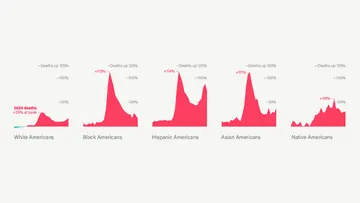This article was published in collaboration with Vice.
I’m feeling nervous.
It’s the same way you might feel doing anything for the first time, even something real simple. You just don’t know if you’ll do it right.
My polling location is right here in my building, so it won’t be hard for me to cast a vote the way it is for a lot of working people. There will probably be a line of us, and I’ll be standing there feeling really good about myself. It’ll be a feeling to pay attention to, to savor. A feeling of pride.
I got out of prison in 2008, before Barack Obama came in. But I was on parole for many years and couldn’t vote1, so I didn’t really start paying attention to all this stuff until 2014.
A friend of mine was working for the Board of Elections, helping out at one of the polls, and he said, “Man, you should check it out.” So I filled out the papers, and soon enough, I was involved.
I put up the signs to let people know where they could find their polling location, and then I stood at the door to point the way from there. I was directing people on how to fulfill one of their rights. I was witnessing democracy, but not yet taking full part in it.
This year, I applied for a voter registration card. Being able to vote — that’s rare for people like me.
You have to understand where I came from — I mean, Eighth Avenue and 120th Street in New York City. It was different there when I was a kid. We didn’t have a lot of options. I went to James Monroe High School and graduated in 1972, but started getting into things I shouldn’t have.
I became a very dangerous man. I told people in the jewelry stores to put jewels in briefcases, and they'd listen. I was in and out of prison, always for armed robbery — until 1991 when, in my late 30s, I was sentenced to 18 years to life. They put me away.
I went to Attica, a violent place. You had to be serious about your business and your life, or you didn’t make it out.
I ended up taking a lot of classes, and I focused on a trade — laying carpet — which I liked because it kept me moving, moving, working, working, and because it was something I knew existed on the outside, too.
But I wasn’t even thinking about voting or politics. It’s a different world in there, and politics and the president are on the outside. So why would we care? Why would we be interested in voting? Why would we be interested in something we couldn’t actually do?
When I got out in 2008, I started doing things I never did before, like earning, working, staying busy, staying positive.
The fact that Obama was a real candidate, and my color — even if I wasn’t engaged in the process yet, that made a difference. It told me that everybody does have some kind of a shot, even me. And things started to change. My sister, who is gay, can get married now. The world is getting a little fairer.
This time, I’m voting for Hillary Clinton. A woman being President of the United States of America — that’s something to be involved in.
I know what it’s like to come a long way, to not be able to do the things I want to do. It’s a struggle out here — the requirements of survival, for working people, are real and sometimes overwhelming. Keeping food, keeping clean — it’s hard work. People don't understand that, and they don’t understand that voting is the most important way of changing it.
All I can say is I hope other former inmates get out and vote. The problem is, you have to believe to be able to vote, and most of us don’t. Some don’t believe in people at all; others don’t believe in the government because that’s what their lives have taught them.
But I will vote. I don’t believe in all people, but I believe in the right people, and what they can do.
Lawrence "Lonnie" Patterson, 63, is a van driver, building maintenance worker, and donations assistant for The Fortune Society, a prisoner reentry program. He is also employed by the New York City Board of Elections. He was released from prison in 2008 and completed his parole by 2013.
